New documents show Pakistan & US, "far from lockstep" on Afghanistan
4 min readAccording to emails, unclassified cables and other written materials seen by Politico magazine, tensions between Washington and Islamabad "linger" after two decades of war in Afghanistan. They show the two governments "are far from lockstep" on the road ahead in Afghanistan.
According to the story by Nahal Toosi, Washington DC has been pressing on Islamabad to cooperate on fighting militant outfits like Isis-K and Al Qaeda following the Taliban takeover of Afghanistan.
Islamabad, meanwhile, according to Politico, feels it deserves more recognition for its role in helping people fleeing Afghanistan "even as it has downplayed fears of what Taliban rule of the country could mean."
Politico references a discussion between State Department's Ervin Massinga and Pakistan's Ambassador to the United States Asad Majeed Khan on August 26 in which the latter assures Washington that the Taliban have no plans of revenge attacks.
Khan said that according to his sources, the Taliban "were not seeking retribution, and in fact were going home to home to assure Afghans that there will not be reprisals,” according to parts of a memo circulated among U.S. diplomats.
Politico saw the meeting notes from their interaction.
“Khan intimated the Pakistani government would also appreciate public acknowledgment for the country’s assistance on the evacuation front," the notes said.
Since then, the US Embassy has tweeted its appreciation for Pakistan's efforts with evacuations.
Politico also notes how President Joe Biden's administration "has been unusually circumspect about revealing its contacts and discussions with Pakistan," saying that while Pakistan's actions "often appear at odds with the US" it is a nation with links to the Afghan Taliban and their cooperation can be helpful.
"It’s also a nuclear-armed country American officials would prefer not to lose entirely to Chinese influence," they write.
The magazine also notes that Biden has yet to call the Prime Minister of Pakistan, a sore point of Imran Khan's administration and which has become the source of popular internet fodder.
Defense Secretary Lloyd Austin spoke with Pakistan’s Gen. Qamar Javed Bajwa before the takeover but there was little reported on what was said between the two.
Secretary of State Antony Blinken has spoken to Foreign Minister Shah Mahmood Qureshi once since the Taliban takeover but neither released significant details on what transpired in the call.
Politico reported Daniel Markey, a South Asia specialist who served at the State Department from 2003 to 2007 as saying: “It’s clear that the Biden administration from the top levels seems to have pretty deep reservations about Pakistan, born of years of experience, and is not willing to either give Pakistan a pass or kudos for anything that Pakistan might like."
Pakistan, on its part, and especially under Khan's administration, has voiced concerns about Afghanistan's future before the US troops withdrawal, saying the solution lies in an inclusive government. Imran Khan has been a vocal opponent to military solution in Afghanistan since his entry into politics.
His adviser on security matters has reiterated his stance at international forums and during his visit to the US in July. On Saturday he spoke about the world needing to recognize India's atrocities before it was too late, making a reference to Afghanistan.
Pakistan is perceived to have supported the Afghan Taliban since the fall of their government following 9/11 attacks. This is part of the Biden administration's distrust toward Pakistan.
Former president Ashraf Ghani who fled Kabul following the takeover had tense relations with Islamabad and was vocal about Pakistan's support for the Taliban.
Pakistan denies the charges.
A former senior U.S. diplomat told Politico that Pakistan will be helpful tracking down and targeting terrorist targets in Afghanistan now that the U.S. has withdrawn troops "if you can get it."
Lisa Curtis, former National Security Council official in Donald Trump's administration, echoes a similar sentiment.
“If anybody is arguing that we need Pakistan’s support to try to moderate Taliban behavior, I think they should remember that we didn’t get that support for 20 years, so we’re unlikely to get it now that the Taliban is in power in Afghanistan,” she is quoted in Politico as saying.
For the latest news, follow us on Twitter @Aaj_Urdu. We are also on Facebook, Instagram and YouTube.














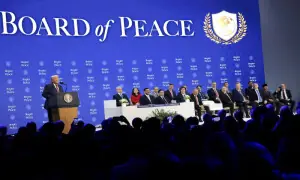

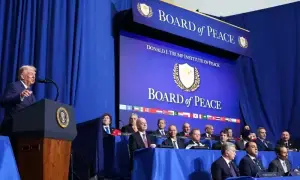
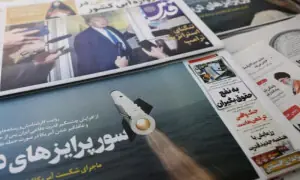
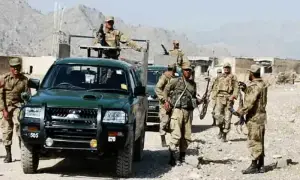

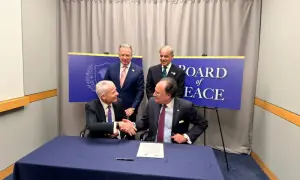


Comments are closed on this story.